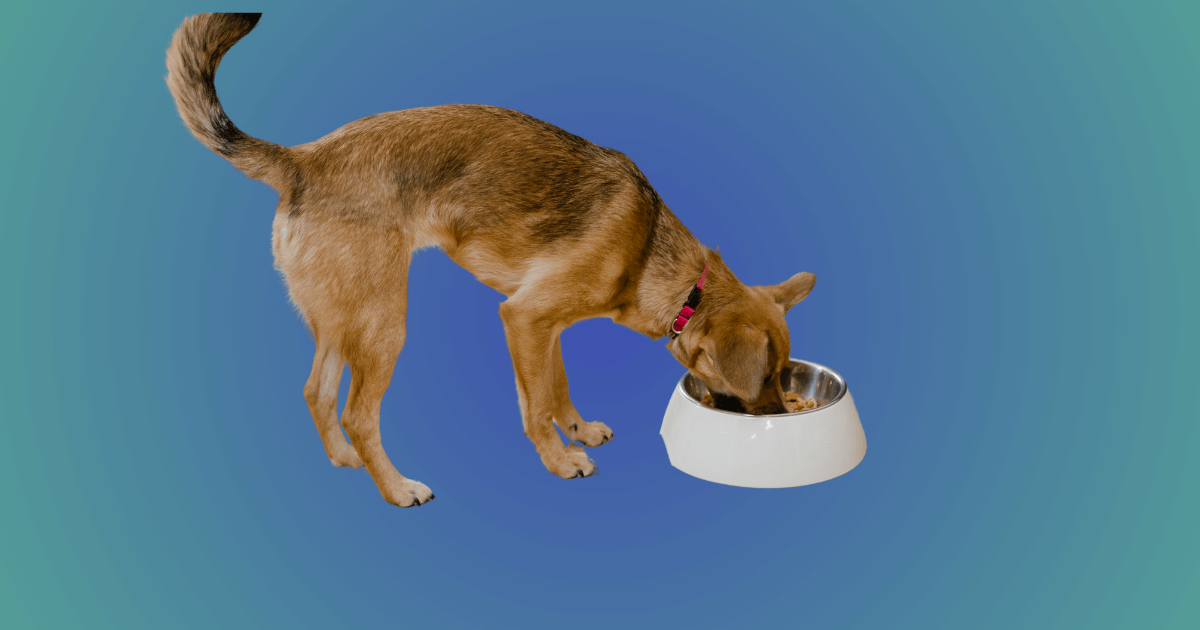All dogs are different—and not just in personality; they have different nutritional needs, too. When there are so many dog food options, it’s hard to know what’s best for your furry friend. Nourishing Needs Just like humans, your dog needs the right balance of nutrients to thrive, and this balance differs for every dog, depending on their breed, size, age, and activity level. This article will explain why it’s important to find the right dog food for your dog, based on the type of dog food that you should give them. And to guide you in picking the best Dog Food for Specific Dog Breeds that will help keep your dog feeling happy, healthy, and energetic.
1. Understanding Dog Food for Specific Dog Breeds
Dog Food for Specific Dog Breeds is designed with the individual health and dietary needs of specific breeds in mind. These are based on the dog’s size, type of coat, metabolism, and even its likelihood of allergies or certain health problems. Dog food made for all dogs will work for the vast majority of them, but breed-specific food takes that concept to another level by offering specialized nutritional support based on a breed’s unique requirements.
2. The Importance of Tailored Nutrition for Your Dog

All dogs are not created equal, and neither are their nutritional needs. The larger the dog, however, the lower its metabolic rate. Which means small dogs require high-energy food, and if you have larger dogs, you need food that can support their joint health but also keep their weight in check. Our breed-specific dog food recipes work in combination with the physical and genetic traits that set your dog apart from other dogs.
3. Dog Food for Small Breeds: Energy and Digestive Support
Small breed dogs are known for their high energy levels, and their food needs to support this. Small-breed dog food is typically packed with more concentrated nutrients to keep their energy levels up throughout the day. These formulas are also easier to digest, as smaller dogs often have smaller digestive tracts. Additionally, the kibble is usually smaller, making it easier for them to chew and swallow.
4. Dog Food for Large Breeds: Joint and Bone Health
German Shepherds, Labradors, and Great Danes are great examples of large-breed dogs that require special nutrition that only large dogs need. To feed them, each dog has a greatly increased chance of hip dysplasia and other joint issues, so their food should contain ingredients like glucosamine and chondroitin to maintain joint health. Furthermore, the best dog food for large breeds has restricted fat levels to avoid obesity, which is widespread in big dogs.
5. Dog Food for Puppies: Growing Needs
Puppies require different nutrients than adult dogs, and the type of nutrients your puppy needs may vary according to the breed. All puppies need a diet high in protein and fat to support growth, but large-breed puppies need to be fed a food that will support reasonable, controlled growth to combat weight gain when they become adults. puppy small breed Small-breed puppies need more nutrient-dense food because they have higher metabolisms, whereas medium-sized puppies need a more balanced source of nutrients so they will grow at a consistent rate.
6. Dog Food for Senior Dogs: Supporting Aging Bodies
As dogs mature, their dietary needs change. All breeds, as they age, experience a slower metabolism and loss of muscle mass, and they can develop health problems such as arthritis, kidney problems, or heart disease. Senior dog food specially formulated for senior dogs contains less fat and easily digestible proteins, as well as added nutrients to support senior dogs’ aging joints, vision, and cognitive function.
7. Hypoallergenic Dog Food for Sensitive Breeds
Allergies and sensitivities. While all dogs can be susceptible to allergies, some breeds are more so than others. For example, breeds such as Bulldogs, Retrievers, and Cocker Spaniels are generally predisposed to food allergies, skin disorders, and digestive problems. Food sensitivity and allergies can contribute to these problems, and hypoallergenic dog food that’s made with fewer common allergens—such as grains and other proteins—can help to reduce symptoms. This sort of food uses top-quality ingredients to guarantee that a dog would not experience any allergic reactions and would stay in optimum condition.
8. Dog Food for Active Breeds: High-Performance Diets
Active breeds such as Border Collies, Siberian Huskies, and Australian Shepherds, for example, need more protein, fat, and calories to support an active lifestyle. These breeds are known for their amazing endurance and incredible work ethic, and they need a diet that supports muscle recovery and energy. Dog food for active breeds often consists of lean meats, fatty acids, and other supplements such as omega-3s and omega-6s for joint health and a shiny coat.
9. Special Dietary Considerations for Dog Food for Specific Dog Breeds
Some breeds can be prone to certain health conditions, so they may need special diets. Dachshunds are prone to back issues, so they need a diet that provides support to their spine and joints, for instance. Additionally, Bulldogs are known to be predisposed to obesity and respiratory issues, so their food needs to aid in weight management and be easy to digest. Knowing what health risks your dog breed faces and feeding them properly can mean a huge difference in the quality of life they can enjoy.
10. How to Choose the Best Dog Food for Specific Dog Breeds
When choosing food that’s right for your dog, consider their breed, age, weight, level of activity, and any special health needs they might have. You also want to see what’s inside so that the food includes high-quality sources of protein, healthy fats, and appropriate amounts of vitamins and minerals. If you have concerns about which food is appropriate for your dog’s breed-specific needs, make a point of discussing your dog’s requirements with your vet.
Conclusion: Dog Food for Specific Dog Breeds
It is important for your dogs’ overall health and well-being that they are given the right food to ensure that sense of well-being. While regular dog food may be sufficient for most dogs, breed-specific formulas will give that extra love and attention your precious pup needs. By knowing what your dog’s breed needs are and feeding them the right diet, you can be confident that your beloved dog is receiving the nutrition and care they deserve and that they will be healthier.
FAQs: Dog Food for Specific Dog Breeds
1. Why should I feed my dog breed-specific food?
Breed-specific food is designed to address the unique dietary and health needs of each breed. It ensures your dog gets the right nutrients to support their size, metabolism, and predisposition to specific health issues.
2. Can I feed my dog regular food instead of breed-specific food?
While regular dog food may be sufficient for many dogs, breed-specific food is formulated to meet the particular needs of your dog’s breed, which can improve their health, energy, and longevity.
3. What are the main differences between small-breed and large-breed dog food?
Small breed food is more calorie-dense and easier to digest, while large breed food contains ingredients that support joint health and is lower in fat to prevent obesity.
4. Are there special diets for dogs with allergies?
Yes, hypoallergenic dog food is formulated for dogs with sensitivities or allergies. It avoids common allergens and uses alternative protein sources to prevent reactions.
5. How do I know which dog food is best for my breed?
To find the best food for your dog, consider their breed, age, weight, and health status. You can also consult your veterinarian for recommendations based on your dog’s specific needs.

